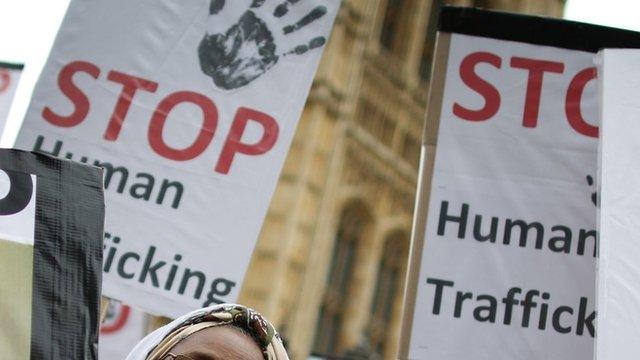UK slavery: Victims 'need better support'
- Published
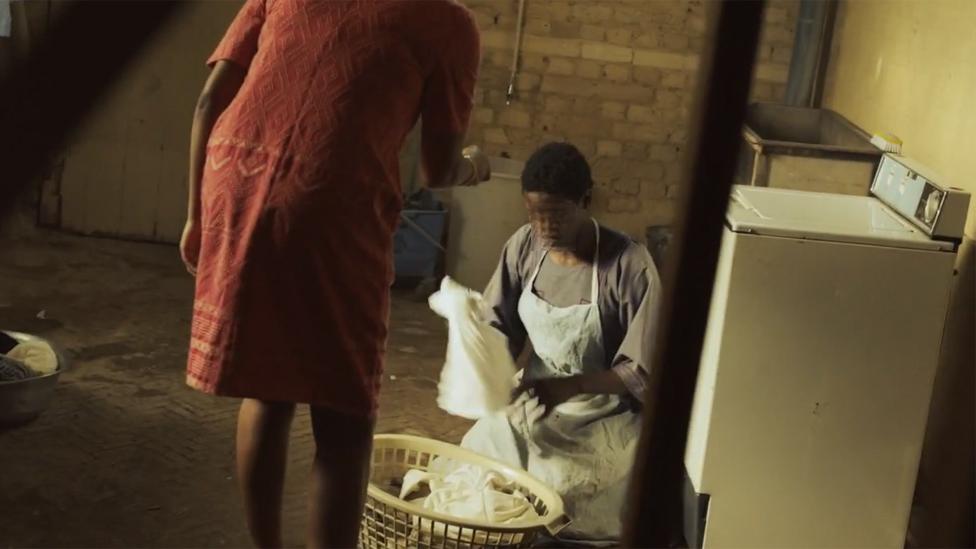
The treatment of some victims of modern slavery by UK authorities is "morally unacceptable", the country's first anti-slavery commissioner has said.
Kevin Hyland said some victims were not given proper support by authorities.
Setting out his first plan of action, external since the role was created last year, he said he wanted more victims to be identified and more prosecutions of traffickers and slave masters.
He said he planned to do this by giving police special training on slavery.
Officers must know how to handle victims of sexual exploitation and forced labour, as well as perpetrators, he said.
"Our primary aim must be to help victims to recover. Evidence from across the globe also makes clear that without effective support for victims it is very difficult to increase the number of prosecutions," he said.

Action plan: at a glance
Help victims feel safe and confident enough to come forward and share their accounts
Make sure police know how to respond to victims and criminal activity is recorded and investigated
Work with businesses to ensure they are certain their supply chains do not involve slavery
Raise awareness of slavery with hospital workers, schools and councils and educate people about what to do if they see it happening

Authorities have launched a new crackdown on the issue
Last year analysis for the Home Office suggested there could be between 10,000 and 13,000 slavery victims in the UK with the majority coming from Albania, Nigeria and Vietnam. However, there was also a significant rise in the number of British people being referred to the authorities.
Most were forced into labour or prostitution, with a growing number of Nigerian victims forced to be domestic slaves.
Mr Hyland said many were held in "hidden handcuffs".

'Scary and confusing'
Lam was 16 years old when he came to the UK alone from Vietnam in 2009. He hoped to earn money to send home to his family but was forced to work in an illegal cannabis factory.
"I was there for five weeks by myself. Everyday someone would call to check up on me and sometimes visit to make sure I was doing a good job.
"I slept on the floor in a corridor and lived on food parcels that were delivered every two weeks.
"I remember asking the man who took me there if I could leave because I didn't like it but he threatened to beat me or starve me to death.
"After five weeks the police raided the house and arrested me. They told me the plants I was looking after were cannabis and that I'd been helping to grow illegal drugs.
"The police charged me with drug offences and I was sentenced to 18 months in a young offenders' institute. I was worried about my mum, but couldn't contact or help her from prison. The entire time was really scary and confusing."
Lam was eventually helped by the NSPCC child trafficking advice centre., external

Mr Hyland said of victims: "They are groomed in a way. They are told their families will be hurt, their documents are taken from them and they are too scared to come forward."
Many were "hidden in plain sight", he said, working in nail bars, construction or on farms.
"You can be driving along a country lane - on one side of the road people are legitimately employed and on the other side of the road people are in forced labour and slavery. But actually it's up to the authorities and the communities to look a little bit further," Mr Hyland said.
He said better recording of the crime would lead to more support for victims and a more accurate picture of the problem.
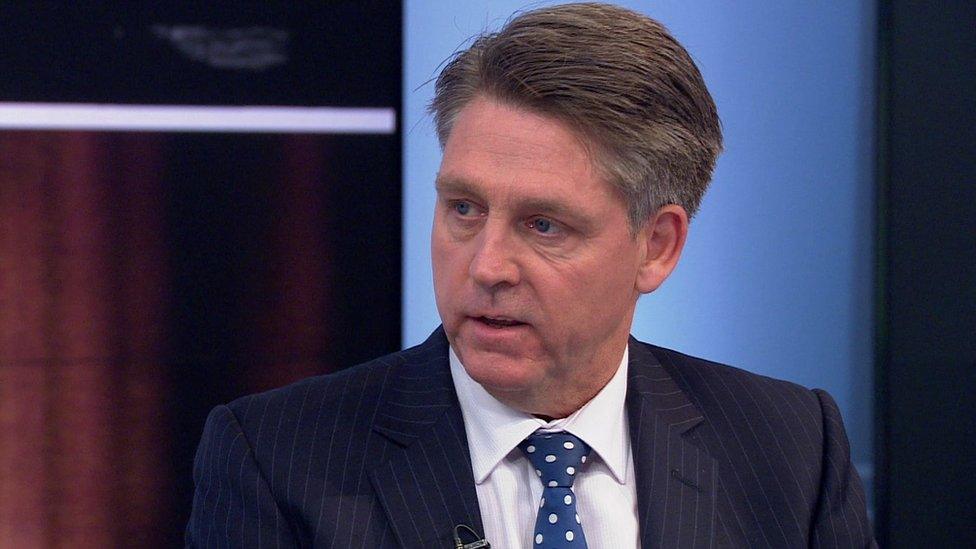
Mr Hyland said claims that modern slavery is 'too hidden a crime' can no longer be accepted
Debbie Beadle, from the charity ECPAT UK, which works with child victims of trafficking, urged people to report any concerns.
"People often think 'It's none of my business' but often victims have come from other countries and they have no idea about where to go for help," she said.
"Members of the public can play an active role. Call the police or the local authority if you have concerns and they can investigate."
- Published31 July 2015
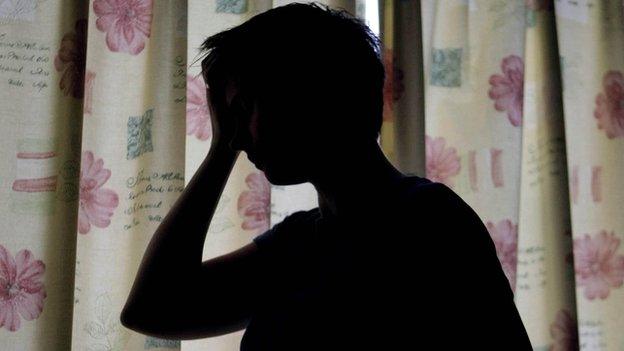
- Published17 May 2015
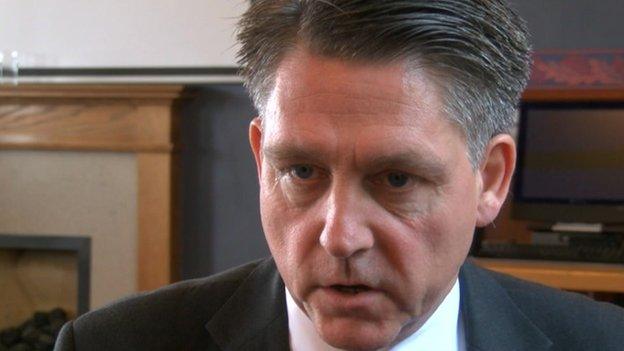
- Published1 June 2015
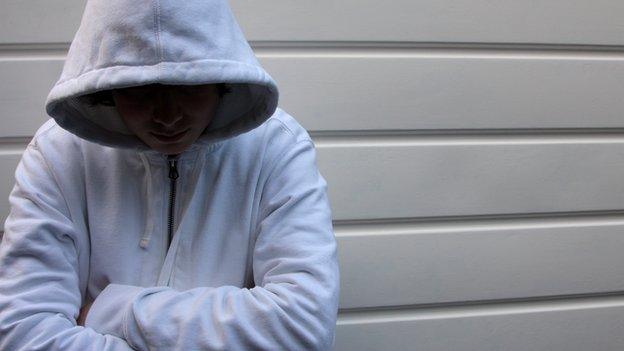
- Published29 November 2014
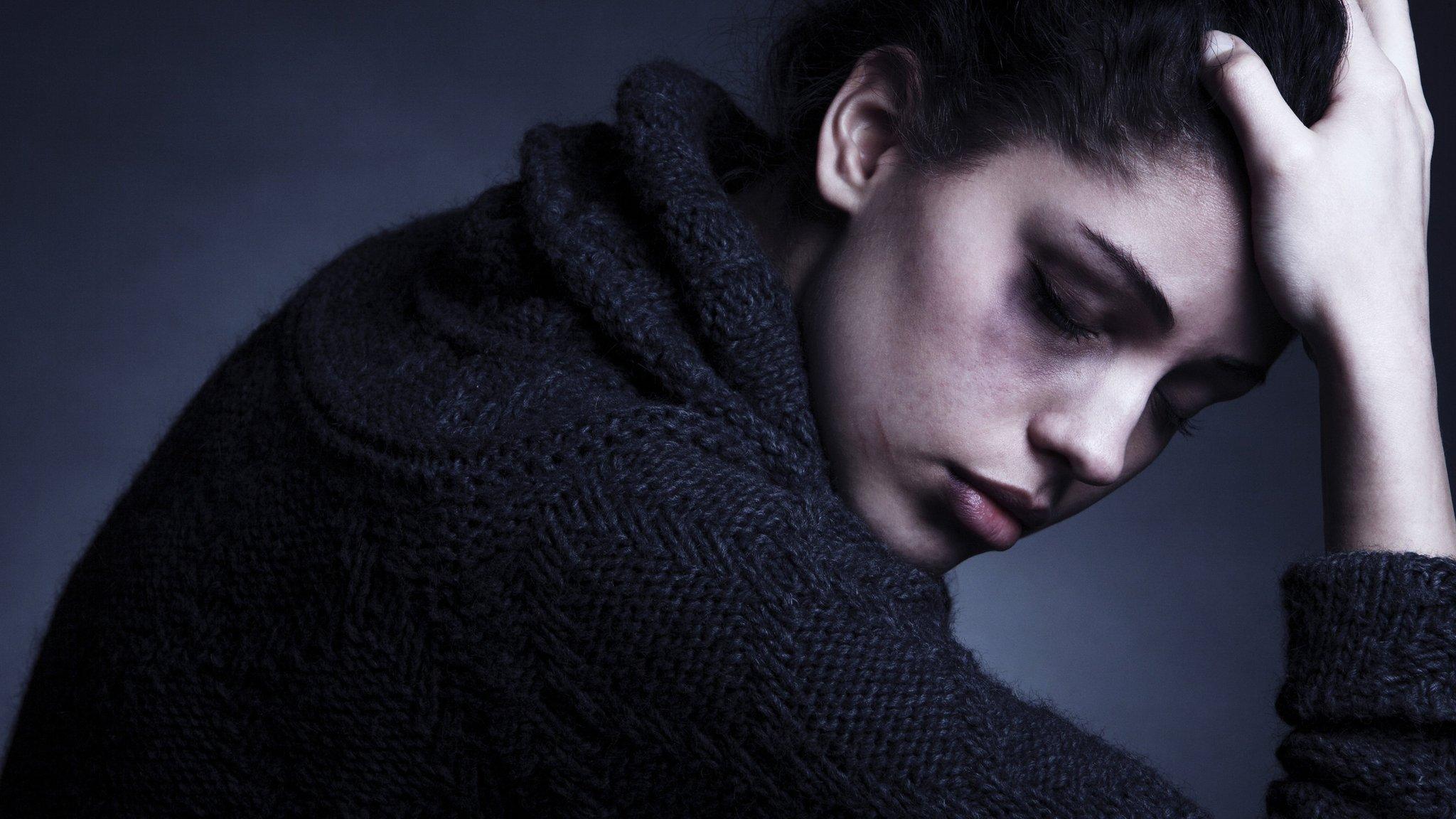
- Published19 February 2015
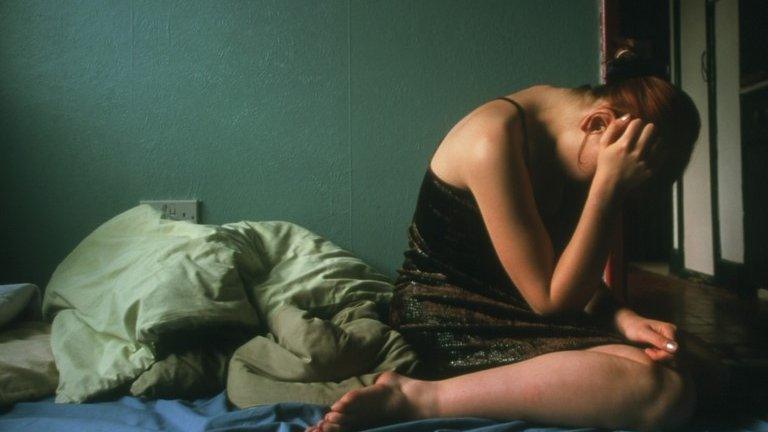
- Published17 June 2015
